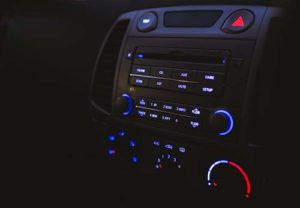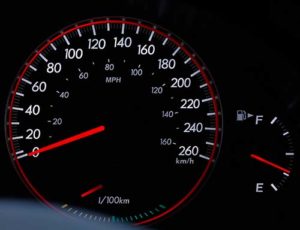Although you might typically associate air conditioning service with spring, fall is a good time to have this part of your vehicle serviced. Spring and summer, especially in Atlanta, are high-pollen times of year that can lead to clogged filters. Getting your air conditioning serviced is an important part of your maintenance schedule, ensuring that you can breathe easy year-round.
Have you Gotten Your Car’s Air Conditioning Serviced This Year?
 Unlike your engine or other electrical components in your car, there isn’t an ‘air conditioning service’ light on your dashboard. As a result, your car’s air conditioning is one of those service items that you may not think about until it isn’t working like it should.
Unlike your engine or other electrical components in your car, there isn’t an ‘air conditioning service’ light on your dashboard. As a result, your car’s air conditioning is one of those service items that you may not think about until it isn’t working like it should.
Signs that your car air conditioning should be inspected:
- The vents are blowing stale or strange smelling air: One of the main signs that your air conditioning needs service is how the air coming out of the vents smells. The air blowing through the vehicle’s system should be odorless. A clogged or dirty air filter is the most likely culprit of this issue.
- The air conditioning isn’t blowing cold air: This problem could result from a few different causes, all of which would need to be diagnosed and fixed by a certified mechanic. Reasons your air conditioning isn’t blowing cold air include a faulty compressor, a leak in the A/C system, or a blown fuse.
- The airflow is weak or nonexistent: Weak or nonexistent airflow is usually related to the A/C system fan.
If you haven’t serviced your car’s air conditioning this year, bring your car by T3 Atlanta. We can inspect the system, advise whether your A/C needs service, and make repairs if needed.
Causes of Car Air Conditioning Problems
 One of the most common causes of air conditioning problems is that the freon contained in the system has leaked. In this case, you may need to recharge air conditioning, also known as an “evac and recharge”. This process consists of vacuuming all existing fluids from the system before refilling the system with new fluids.
One of the most common causes of air conditioning problems is that the freon contained in the system has leaked. In this case, you may need to recharge air conditioning, also known as an “evac and recharge”. This process consists of vacuuming all existing fluids from the system before refilling the system with new fluids.
Your air conditioning system is an enclosed system and may never need to be recharged. In older vehicles, depending on use, you may need to have the system recharged every 3 years or so.
In addition to leaking freon, there are many potential reasons that an air conditioning is not getting cold:
- The A/C system has a faulty fan
- A seal has become worn and is leaking
- An electrical malfunction is preventing the system from working normally
- A compressor has failed or is faulty
- The condenser or evaporator has failed or is faulty
Whatever the cause of your air conditioning woes, T3 Atlanta can help. We’ll diagnose the problem and get your system up and running so you can get back to driving in comfort.
Car Heating and Air Conditioning Service in Atlanta
Whether you’ve never serviced your air conditioning, want to have the system inspected as part of preventive maintenance, or have a busted A/C, bring your Toyota, Nissan, Lexus, or Infiniti to T3 Atlanta. We have two metro-area locations in Smyrna and Decatur for your convenience. We’ll help you keep your air conditioning in top condition for cool, pollen and dust-free air.
 Heavy traffic in the morning can spell significant delays and plenty of people in a rush to get to school or work. Book extra time to get where you’re going so that you won’t need to worry about being late for the bell if you encounter heavy traffic.
Heavy traffic in the morning can spell significant delays and plenty of people in a rush to get to school or work. Book extra time to get where you’re going so that you won’t need to worry about being late for the bell if you encounter heavy traffic. Emails, texts, calls, choosing the best song for your morning ride, and even reacting to street directions all demand a part of your attention. However, the most important thing you need to focus on is the road.
Emails, texts, calls, choosing the best song for your morning ride, and even reacting to street directions all demand a part of your attention. However, the most important thing you need to focus on is the road. Keep your gas tank at least half full. Even though it might mean an extra trip to the gas station, you will never have to worry about running out of gas when you’re stuck in traffic on the freeway.
Keep your gas tank at least half full. Even though it might mean an extra trip to the gas station, you will never have to worry about running out of gas when you’re stuck in traffic on the freeway. Depending on where you live in Atlanta, your neighborhood may have a lot of cyclists and pedestrians on the road. Be sure to share the road when you’re behind the wheel.
Depending on where you live in Atlanta, your neighborhood may have a lot of cyclists and pedestrians on the road. Be sure to share the road when you’re behind the wheel. Whether you take your vehicle to a local car wash or pull out your handheld vacuum cleaner, vacuuming your car once a week can go a long way towards the air quality in your car. Crumbs in the seats and dirt and debris on the floor mats contribute to building odors. Getting rid of these culprits regularly helps prevent odors from building up over time.
Whether you take your vehicle to a local car wash or pull out your handheld vacuum cleaner, vacuuming your car once a week can go a long way towards the air quality in your car. Crumbs in the seats and dirt and debris on the floor mats contribute to building odors. Getting rid of these culprits regularly helps prevent odors from building up over time. If the smell in your car is unbearable, it may be time to do a deep clean. Some car washes offer deep cleans, but you can also make an interior car wash an afternoon project. Just make sure it’s a sunny day!
If the smell in your car is unbearable, it may be time to do a deep clean. Some car washes offer deep cleans, but you can also make an interior car wash an afternoon project. Just make sure it’s a sunny day! There are a few different ways to deodorize your car naturally. These options absorb the smells and may take time to fully get rid of the unwanted odor.
There are a few different ways to deodorize your car naturally. These options absorb the smells and may take time to fully get rid of the unwanted odor. This tip ultimately comes down to a personal preference. Slip-ons and sandals are ideal for long drives, but some people live in their sneakers. Whatever your footwear of choice might be, you’ll ideally want to avoid shoes that constrict or cut into your skin to help make your drive as comfortable as possible.
This tip ultimately comes down to a personal preference. Slip-ons and sandals are ideal for long drives, but some people live in their sneakers. Whatever your footwear of choice might be, you’ll ideally want to avoid shoes that constrict or cut into your skin to help make your drive as comfortable as possible. By keeping snacks and other trip essentials within reach, you’ll save yourself a lot of hassle when, two hours into your trip, you realize that you need a charging cable for your phone or GPS.
By keeping snacks and other trip essentials within reach, you’ll save yourself a lot of hassle when, two hours into your trip, you realize that you need a charging cable for your phone or GPS. Stopping and stretching helps keep you alert, which is important when it comes to late-night or even overnight drives. When you push yourself past your limits on a marathon drive, your reaction time and alertness decrease, which can be a dangerous combination for yourself and other drivers on the road. Stay safe and rest when you need to; that’s what rest stops are for.
Stopping and stretching helps keep you alert, which is important when it comes to late-night or even overnight drives. When you push yourself past your limits on a marathon drive, your reaction time and alertness decrease, which can be a dangerous combination for yourself and other drivers on the road. Stay safe and rest when you need to; that’s what rest stops are for. Unfortunately, a VIN check doesn’t always tell you if a car has been water damaged. The previous owner could be deliberately hiding the damage or may not know that the vehicle ever experienced water damage. In addition, water damage that was not reported to the insurance company may not show up on a VIN check.
Unfortunately, a VIN check doesn’t always tell you if a car has been water damaged. The previous owner could be deliberately hiding the damage or may not know that the vehicle ever experienced water damage. In addition, water damage that was not reported to the insurance company may not show up on a VIN check. 4. You Notice Rust or Corrosion on the Vehicle
4. You Notice Rust or Corrosion on the Vehicle The short answer about whether car airbags can be replaced is that it depends. Some vehicles have curtain or side airbags which further complicate the question. Some newer cars even have knee or rear airbags to reduce your chances of injury during a collision.
The short answer about whether car airbags can be replaced is that it depends. Some vehicles have curtain or side airbags which further complicate the question. Some newer cars even have knee or rear airbags to reduce your chances of injury during a collision. Newer vehicles are equipped with airbags that do not expire, or at least, not quite. The airbags are designed to last for the life of the vehicle.
Newer vehicles are equipped with airbags that do not expire, or at least, not quite. The airbags are designed to last for the life of the vehicle. Older vehicles generally feature airbags that work on a different system – if they have airbags at all. The first airbags appeared in the 1970’s. With the technology being so new, manufacturers at the time were uncertain how long airbags could last and still be effective.
Older vehicles generally feature airbags that work on a different system – if they have airbags at all. The first airbags appeared in the 1970’s. With the technology being so new, manufacturers at the time were uncertain how long airbags could last and still be effective. Buying a car is an investment, so it’s important that you do your research before you buy. The more informed you are, the better equipped you are to spot problems with candidates.
Buying a car is an investment, so it’s important that you do your research before you buy. The more informed you are, the better equipped you are to spot problems with candidates. In addition to these more general research points, you should also take an in-depth look at the specific vehicle you plan to purchase. A car that has a lot of repairs, especially if they appear to be for the same thing, is at an increased chance at being a potential lemon.
In addition to these more general research points, you should also take an in-depth look at the specific vehicle you plan to purchase. A car that has a lot of repairs, especially if they appear to be for the same thing, is at an increased chance at being a potential lemon. While you may not be able to identify mechanical problems on your own, a visual inspection can still tell you a lot about the car. Check the inside and outside of the car to look for engine, structural, and water damage that can cause long-term problems. Of these, water damage is by far the worst from a long-term cost standpoint. After all, water and mechanical parts don’t mix!
While you may not be able to identify mechanical problems on your own, a visual inspection can still tell you a lot about the car. Check the inside and outside of the car to look for engine, structural, and water damage that can cause long-term problems. Of these, water damage is by far the worst from a long-term cost standpoint. After all, water and mechanical parts don’t mix! After-market accessories like mufflers, electronics, speakers, or other electrical system add-ons might sound attractive, but there are a lot of hidden dangers with these neat extras.
After-market accessories like mufflers, electronics, speakers, or other electrical system add-ons might sound attractive, but there are a lot of hidden dangers with these neat extras. There’s nothing like the excitement of new car ownership crashing to a stop because of an unexpected repair bill. T3 Atlanta recommends that you have any vehicle that you are strongly considering inspected before you buy. If the dealer you’re planning to shop with refuses to let the vehicle be inspected by an independent mechanic, that’s a red flag you should not ignore.
There’s nothing like the excitement of new car ownership crashing to a stop because of an unexpected repair bill. T3 Atlanta recommends that you have any vehicle that you are strongly considering inspected before you buy. If the dealer you’re planning to shop with refuses to let the vehicle be inspected by an independent mechanic, that’s a red flag you should not ignore. A sun screen is an affordable and easy way to not only keep the temperature inside your vehicle cooler but prevent damage to your dashboard and electronics caused by regular exposure to heat and UV rays.
A sun screen is an affordable and easy way to not only keep the temperature inside your vehicle cooler but prevent damage to your dashboard and electronics caused by regular exposure to heat and UV rays. Just like keeping your car’s window open for your dog can help keep Fido cooler while you’re at the store for a few minutes, keeping your windows cracked can help keep your vehicle’s electronics from getting damaged.
Just like keeping your car’s window open for your dog can help keep Fido cooler while you’re at the store for a few minutes, keeping your windows cracked can help keep your vehicle’s electronics from getting damaged. While this may not always be a possibility, parking in the shade can help keep the temperature in your car cool. When combined with a sun screen or keeping your windows open a crack, your car will be a comfortable temperature when you’re ready to go.
While this may not always be a possibility, parking in the shade can help keep the temperature in your car cool. When combined with a sun screen or keeping your windows open a crack, your car will be a comfortable temperature when you’re ready to go. Ethanol, also known as bioethanol, is a type of alcohol produced by certain crops. Corn, sugar beets, barley, potatoes, sunflower, grains, wheat, and many other types of crops can all be converted into ethanol.
Ethanol, also known as bioethanol, is a type of alcohol produced by certain crops. Corn, sugar beets, barley, potatoes, sunflower, grains, wheat, and many other types of crops can all be converted into ethanol. That means manufacturers can offer consumers a cleaner-burning, cheaper fuel that doesn’t sacrifice power. However, ethanol does reduce fuel efficiency in cars that are not optimized to run on ethanol. Vehicles that are designed to run on fuel that contains ethanol will have a smaller margin of decreased fuel economy.
That means manufacturers can offer consumers a cleaner-burning, cheaper fuel that doesn’t sacrifice power. However, ethanol does reduce fuel efficiency in cars that are not optimized to run on ethanol. Vehicles that are designed to run on fuel that contains ethanol will have a smaller margin of decreased fuel economy. You may that certain gas stations also feature a standalone pump that, much like diesel, advertises its own selection of fuel. Flex fuel contains up to 85% ethanol and 15% gasoline and can only be run by certain types of vehicles.
You may that certain gas stations also feature a standalone pump that, much like diesel, advertises its own selection of fuel. Flex fuel contains up to 85% ethanol and 15% gasoline and can only be run by certain types of vehicles. It’s possible that an overly enthusiastic pull on your parking brake can cause it to become stuck. In this case, the parking brake has become clamped against the brake shoes too hard and may actually require a professional to unstick.
It’s possible that an overly enthusiastic pull on your parking brake can cause it to become stuck. In this case, the parking brake has become clamped against the brake shoes too hard and may actually require a professional to unstick. Ice can actually freeze your parking brake in place. While this isn’t a common problem in the Atlanta area, it’s a possibility to keep in mind if you’re traveling out of town during cold weather.
Ice can actually freeze your parking brake in place. While this isn’t a common problem in the Atlanta area, it’s a possibility to keep in mind if you’re traveling out of town during cold weather.








